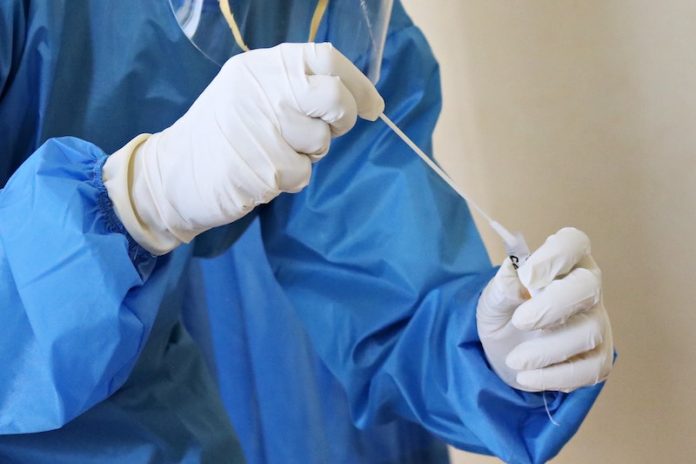
Scientists from Cornell University found that nasopharyngeal swabs—taken from far back inside the nostril—were more effective at detecting COVID-19 than saliva tests or swabs just inside the nostril or under the tongue.
They also found that detection rates were lower in patients with no symptoms, confirming the rationale for shortened isolation guidelines.
The research is published in Microbiology Spectrum and was conducted by Dr. Diego Diel et al.
In the study, the team examined samples from COVID-19 patients. Four different samples were used: nasopharyngeal swabs, anterior nares swabs (front of the nostril), saliva, and sublingual swabs (under the tongue).
They also collected samples from symptomatic, asymptomatic, and post-symptomatic people —those who had recovered from illness—to better understand testing efficiency in these populations.
The team found that nasopharyngeal samples provided the best rate of detection, from 92 to 100%. This is likely because the virus replicates in the nasal turbinate, the tissue structures in the uppermost portion of the nose.
Detection rates from anterior nares and saliva specimens were slightly lower, at 92 to 96% for symptomatic patients.
This detection rate was lower when the samples that came from patients with no symptoms (75% to 92%).
COVID-19 detection of sublingual specimens was much poorer, with detection rates of only 40 to 60% from symptomatic patient specimens and 25% to 42% from asymptomatic patient specimens.
Detection rates in symptomatic, asymptomatic, and post-symptomatic patients were fairly intuitive, with detection being most robust in symptomatic patients, ranging from 92 to 100%, depending on the test used.
For all tests, the virus was slightly harder to detect in asymptomatic patients, at a rate of 75 to 96%. Once symptoms were resolved in post-symptomatic patients, the detection was much more difficult.
The team says the study addressed the very important issue of identifying a sample type that would allow reliable detection of the virus, without significantly compromising the sensitivity of detection.
If you care about COVID, please read studies that some at-home COVID-19 tests may fail, and hemp compounds may help prevent COVID-19.
For more information about COVID, please see recent studies that CBD from cannabis may inhibit COVID-19 infection, and results showing COVID is not just a respiratory illness, it can cause strokes too.
Copyright © 2022 Knowridge Science Report. All rights reserved.



